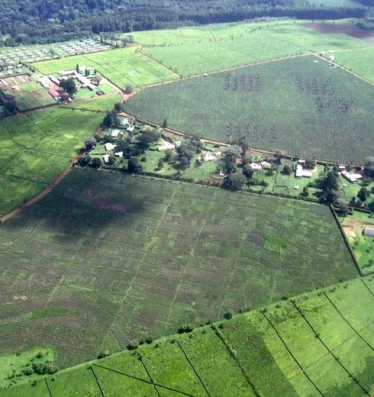The agriculture sector in Georgia plays a vital role in the country’s economy, ensuring food security, fostering rural development, and preserving its cultural heritage. With a rich history deeply rooted in agriculture, Georgia boasts diverse crops, livestock, and traditional farming practices. From vineyards producing renowned wines to fertile lands yielding bountiful harvests, Georgia’s agriculture sector sustains its people, offers employment opportunities, and shapes its cultural identity. The significance of Georgia agriculture extends beyond economic growth, embracing its traditions and providing a foundation for sustainable development.

Historical Background
Agriculture in Georgia has a rich historical background, deeply intertwined with the country’s cultural fabric. Traditional farming practices have been passed down through generations, emphasizing small-scale family farming and the cultivation of staple crops such as wheat, corn, and potatoes. However, the landscape of Georgian agriculture underwent significant changes during the Soviet era, with the implementation of collectivization and the establishment of large-scale state farms. Since gaining independence in 1991, Georgia has undertaken agricultural reforms to revive and develop its agricultural sector, focusing on sustainable practices, supporting smallholder farmers, and promoting organic farming. The historical trajectory of Georgia agriculture continues to shape its current state, with efforts underway to balance modernization with the preservation of traditional agricultural practices.
Export Potential
Georgia’s agricultural sector boasts significant export potential, particularly wine, fruits, nuts, and honey. The country has made commendable efforts to adhere to international quality standards and improve production processes, allowing Georgian agricultural products to gain recognition in global markets. Agriculture is crucial in Georgia’s foreign trade, presenting opportunities for farmers and agribusinesses to tap into lucrative international markets and expand their businesses. The government’s support and initiatives to enhance export capacities further contribute to the growth and competitiveness of Georgia agriculture.

Future Outlook
The prospects of Georgia agriculture are promising, with significant potential for growth, job creation, and rural development. A focus on agricultural education, research, and technology adoption is crucial to realize these opportunities. By equipping farmers with modern techniques and knowledge, Georgia can enhance productivity, increase yields, and improve overall efficiency in the agricultural sector. Sustainable practices and resource management will also contribute to environmental conservation and resilience.
Conclusion
In conclusion, investing in agriculture in Georgia is vital to the country’s economy, ensuring food security and supporting rural communities. The historical background has shaped the current state of agriculture, and the export potential of Georgian agricultural products holds promise for global markets. The future outlook is bright, with opportunities for growth, job creation, and rural development. Stakeholders must collaborate towards sustainable agriculture practices, ensuring Georgia agriculture’s prosperous and resilient future.
mattis, pulvinar dapibus leo.
Georgia's fertile land yields bountiful harvests, nourishing
its agricultural heritage and economy.
Georgia Agriculture FAQ
Georgia's agriculture sustains its people, offers employment opportunities, and shapes its cultural identity.
Georgia has implemented agricultural reforms, emphasizing sustainability, supporting smallholder farmers, and promoting organic farming since gaining independence in 1991.
Wine, fruits, nuts, and honey.
CONTACT US FOR ANY QUESTIONS
Core responsibilities of Human Resource Management

Common Types of HR Services
3box. Culture and different internal policies all have a significant impact on employee retention and engagement. This extremely important for growing businesses and start-ups. For sustainable growth, a big-picture strategy managed by HR professionals or service providers will be key.
It is necessary to develop and maintain a systematized framework to discover opportunities and enhance work performance, while ultimately contributing to the betterment and value of the entity.
Stay ahead in a rapidly changing world
The solution WP consulting came up with combined cutting edge technology with real world practicality. Everyone knew that the systems had to be updated, the real challenge was updating them without disrupting the whole organization in a negative way. The solution was to introduce proper workload management done through computers, while providing mobile platforms to the stakeholders.
This allowed the workers to be involved in the job instead of feeling like they had been made redundant by technology.

The biggest challenge was that Arguzo was not utilizing technology properly. Too much of the work was still being recorded manually, which meant that the numbers took a long time to note down and then to be analyzed. Live data was also not available and decisions can only be made after all the required data and been received. This was holding Arguzo back; they knew they could corner more of the market if they had the ability to be more mobile. The work addressed three critical issues for Pharm Ltd.:
The biggest challenge was that Arguzo was not utilizing technology properly. Too much of the work was still being recorded manually, which meant that the numbers took a long time to note down and then to be analyzed. Live data was also not available and decisions can only be made after all the required data and been received. This was holding Arguzo back; they knew they could corner more of the market if they had the ability to be more mobile. The work addressed three critical issues for Pharm Ltd.:
The biggest challenge was that Arguzo was not utilizing technology properly. Too much of the work was still being recorded manually, which meant that the numbers took a long time to note down and then to be analyzed. Live data was also not available and decisions can only be made after all the required data and been received. This was holding Arguzo back; they knew they could corner more of the market if they had the ability to be more mobile. The work addressed three critical issues for Pharm Ltd.: